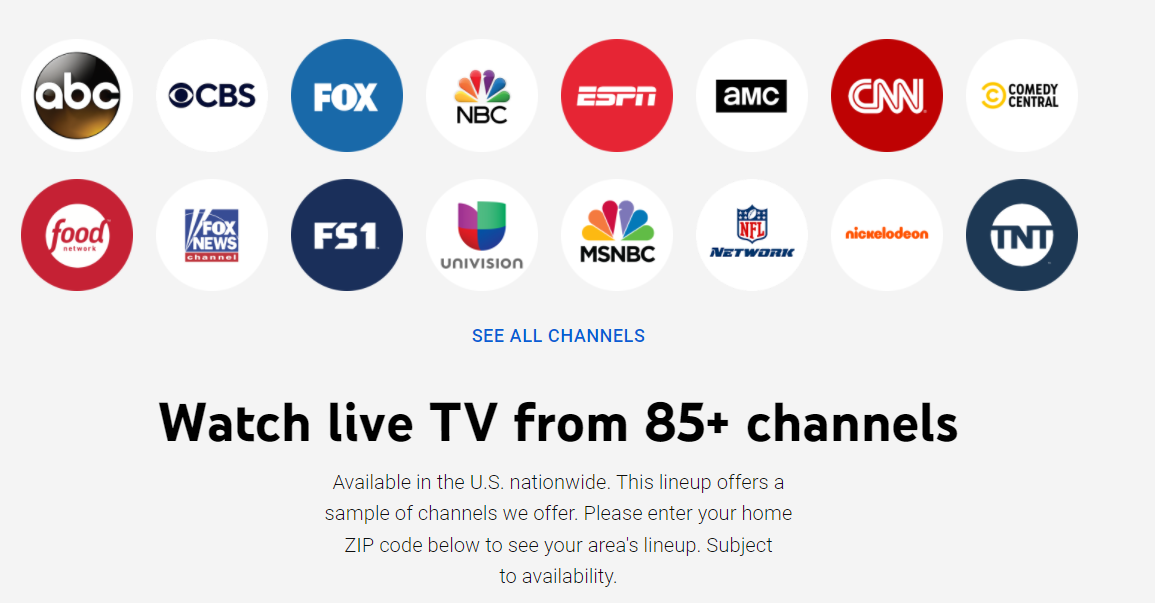YouTube TV and NBCUniversal have been involved in a bitter argument over the last few days, with the latter threatening to pull its channels from the popular streaming service.
But how did we get here, what's the latest situation, and what can you expect going forward? Keep reading to find out.
What's the Backstory to YouTube TV vs. NBCUniversal?
YouTube TV is a live TV streaming service that's been continually growing in popularity over the last couple of years.
Some of the live TV channels offered on the service are provided by NBCUniversal. In total 14, NBC-owned channels were available to subscribers, including big hitters such as NBC, MSNBC, USA Network, Golf Channel, Bravo, CNBC, and Telemundo.
Between them, they carry a diverse selection of highly popular shows, including Sunday Night Football, Late Night with Jimmy Fallon, and Law and Order.
Of course, the two parties had a legal contract in place to support the arrangement. However, the agreement has come under the spotlight since NBC launched Peacock—a rival to YouTube TV—in mid-2020.
The contract between YouTube and NBC that gave permission for YouTube TV to stream the channels finally expired at midnight on Thursday 30th September, and NBC now wants a better deal.
What's the Contract Latest?
Officially, the two parties have agreed to a last-minute short extension beyond the September deadline.
In a statement released late on Thursday, NBC said the following to 9to5Google via a spokesperson:
NBCUniversal and YouTube TV have agreed to a short extension while parties continue talks. NBCUniversal will not go dark on YouTube TV at midnight eastern tonight. We will continue to be in touch on the next steps as we have more information. Thanks for your patience.
But why the holdup? It's understood that the two sides are bickering over the terms of the new deal.
Here's how YouTube described the standoff:
For the duration of our agreement, YouTube TV seeks the same rates that services of a similar size get from NBCUniversal so we can continue offering YouTube TV to members at a competitive and fair price.
NBC took a different stance, accusing Google of refusing to make a deal and being willing to withhold programming from its paying subscribers.
Although neither side has confirmed it, it's thought that Peacock lies at the heart of the dispute. NBCUniversal wants YouTube to bundle Peacock in with the primary YouTube TV service as part of the package—something that YouTube is reluctant to sanction.
What Might Happen Now?
While the two sides continue to thrash out the terms of a potential new agreement behind the scenes, publicly, YouTube has vowed that it will cut the cost of its YouTube TV service if a deal cannot be reached.
At the moment, a subscription to the service costs $65/month. YouTube has said that will drop to $55/month if NBC forces it to remove the 14 channels in question. Presumably, the fact Peacock only costs $5/month as a standalone service is inspiring YouTube to offer extra cost savings in a bid to retain customers and stop them from canceling YouTube TV.
Perhaps most worrisome, however, is the wider implications for the streaming sector. This is not the first time that TV networks and streaming providers have clashed over the availability of channels, and it is unlikely to be the last.
Regional sports networks have already become a major battlefield, with blackouts still commonplace across much of the US. But as this ongoing dispute shows, the battle is now moving beyond mere sports. It only takes one motivated network to seriously hinder the appeal of a competitor's service.
The last thing that consumers want is a return to the cable TV days and the approach that ultimately led to the rise of TV piracy. Networks and streaming providers alike would do well to take note.


